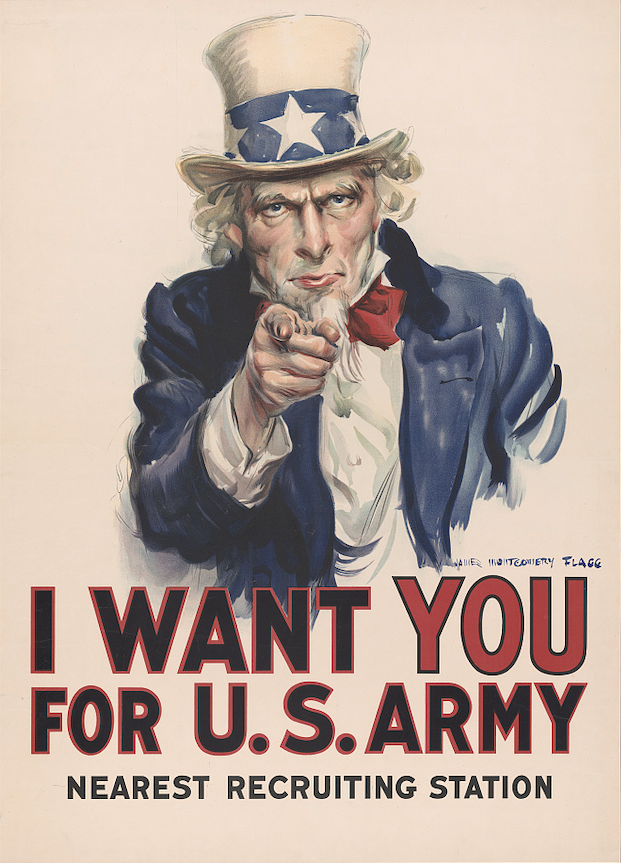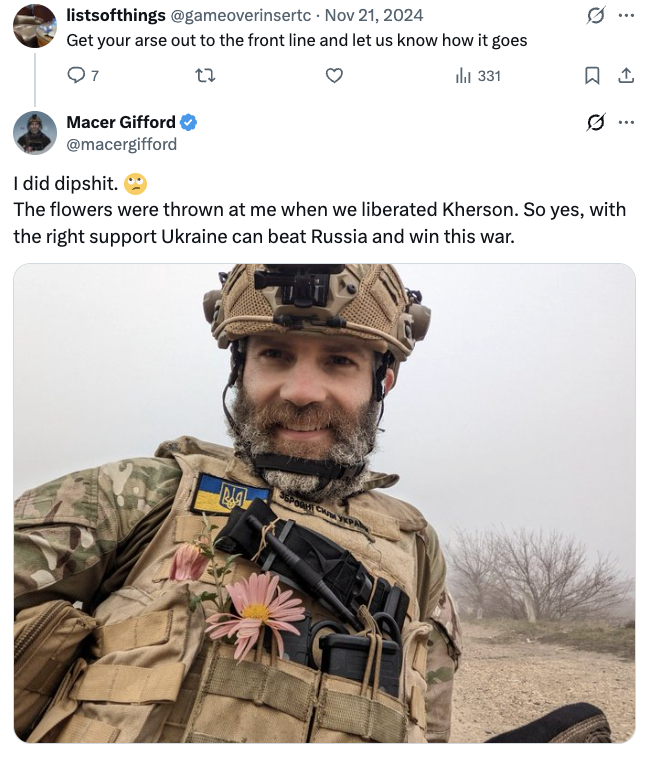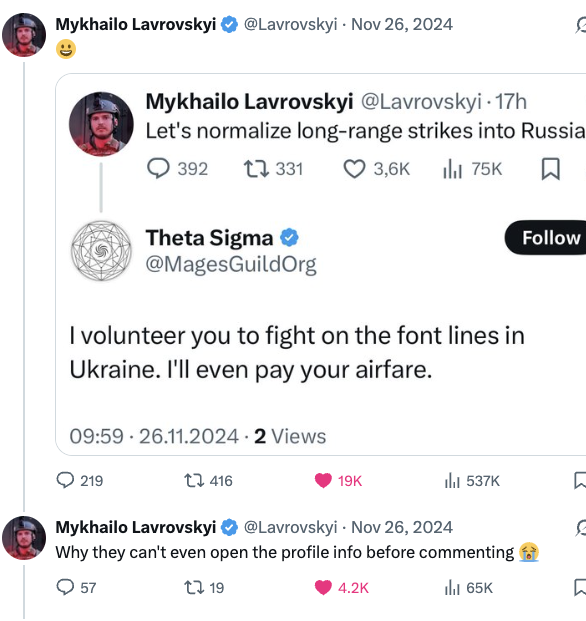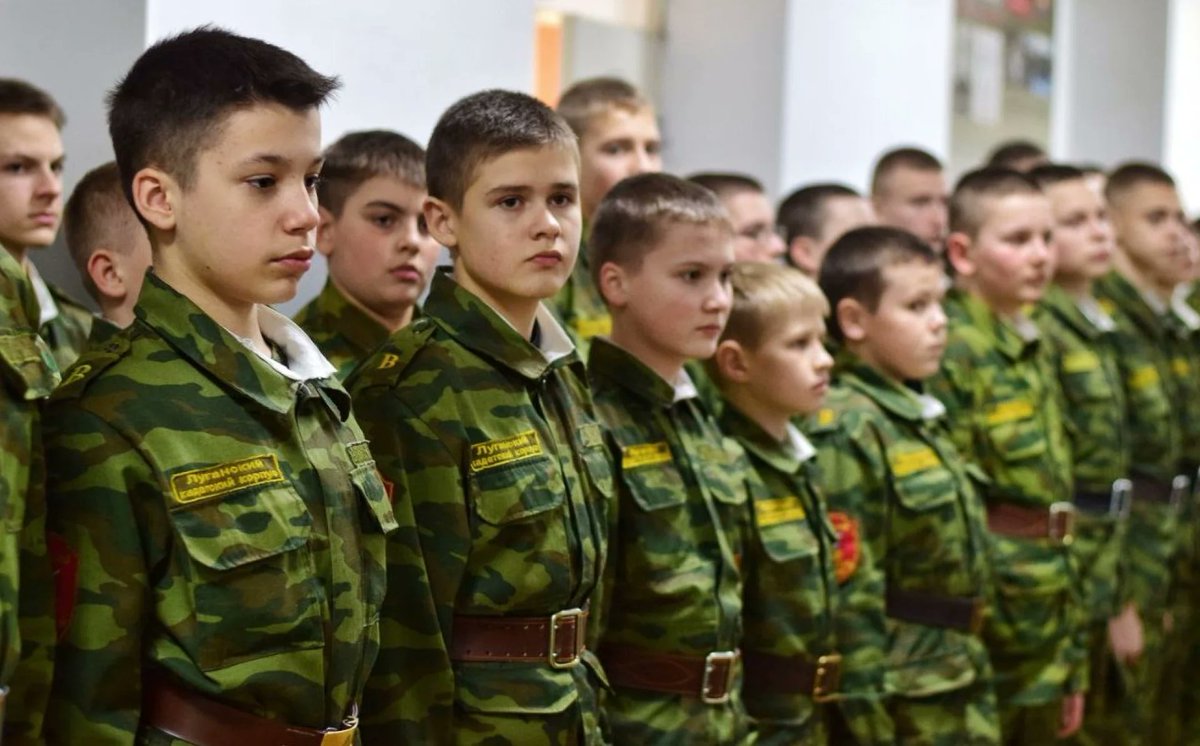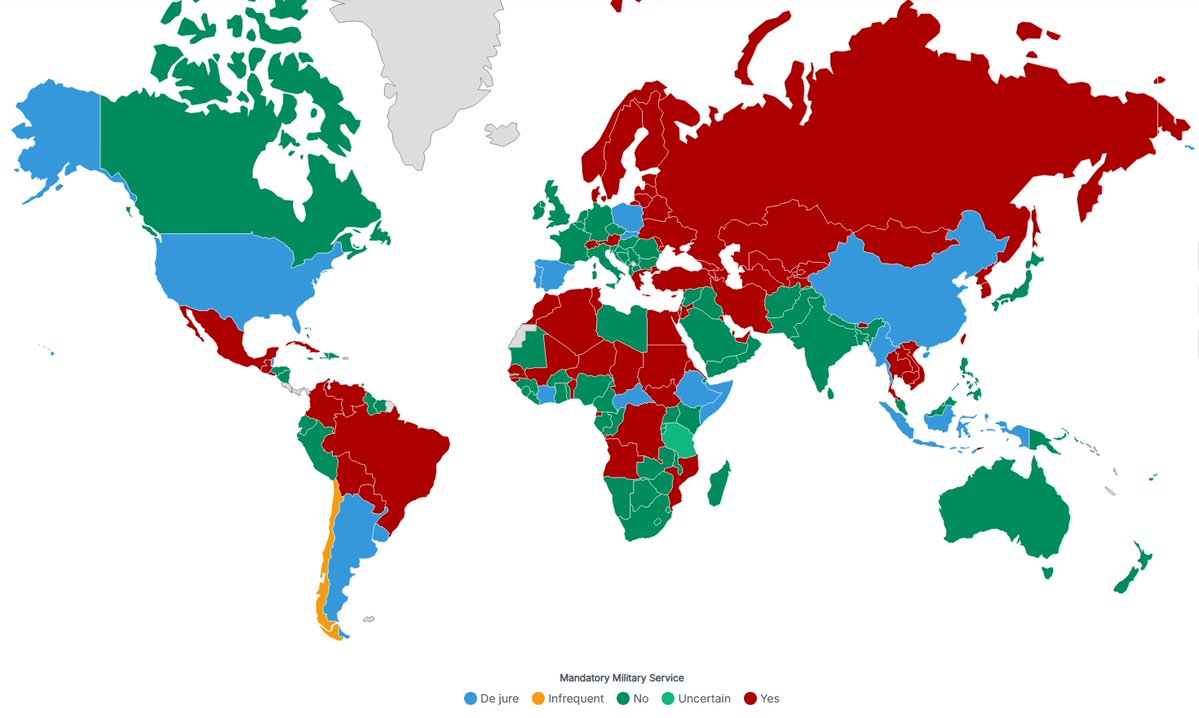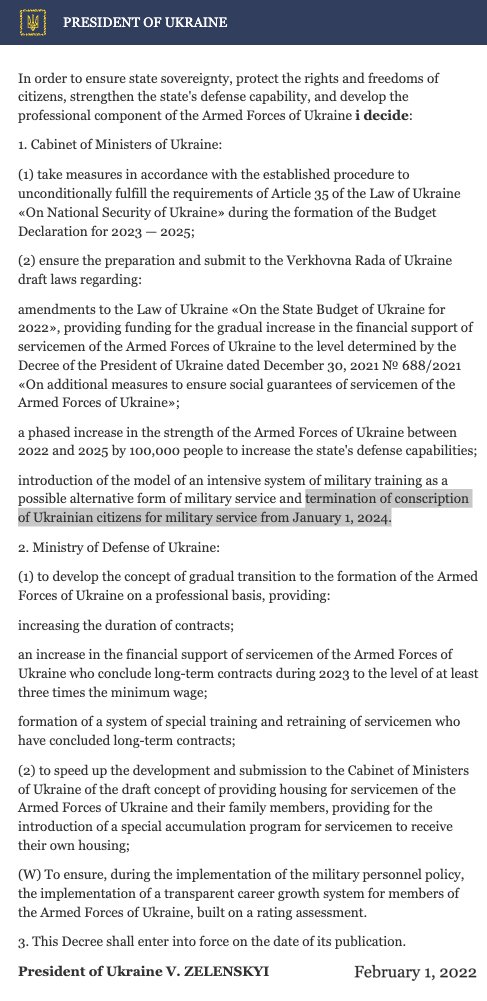In today’s #vatniksoup, I’ll introduce a Romanian politician and conspiracy theorist, Călin Georgescu (@calin_georgescu). He’s best-known for his pro-Kremlin and conspiratorial views, running for president of Romania, and doing it by only campaigning on TikTok.
1/25
1/25

Georgescu has a doctorate in pedology (a branch of soil science), and held various positions in Romania’s environment ministry during the 90s.
Between 1999-2012, he was a representative for Romania on the national committee of the United Nations Environment Program.
2/25
Between 1999-2012, he was a representative for Romania on the national committee of the United Nations Environment Program.
2/25

He was proposed as Romania’s prime minister in 2011, 2012 and 2016 by Romanian far-right parties, but he rose to international infamy in 2024, when he ran for president of Romania independently and obtained the most votes (22,95%) out of all candidates in the first round.
3/25

3/25


This was totally unexpected, as he outperformed most surveys, shocking Romania’s political establishment. Romanian political consultant Cristian Andrei stated that Georgescu’s popularity appears to be a “large protest or revolt against the establishment.”
4/25
4/25

Like in many other Western countries, Romania’s large budget deficit, relatively high inflation, and economic challenges may have pushed mainstream candidates towards populist rhetoric, offering quick and easy solutions for complex, global problems.
5/25

5/25


Georgescu’s policies are typical for a populist candidate - supporting Romanian farmers, reducing dependency on imports, and ramping up energy and food production. But his massive success can be accounted to one important factor - his campaign on TikTok.
6/25
6/25

Călin is extremely popular on TikTok - his first account had accumulated 1,7 million likes before it was deleted, and his current official account has 440 000 followers & +5 million likes. It is also clear that these numbers have been manipulated and are by no means organic.
7/25

7/25


After taking a closer look, Georgescu appears to be a regular vatnik conspiracy theorist. His previous pro-Russian statements were so extreme, that some even considered him a representative of Kremlin’s interests in Romania. As is tradition, he’s also a harsh critic…
8/25
8/25

…of EU and NATO, even calling the ballistic missile defense system based in Deveselu, a Romanian NATO base, a “shame of diplomacy”. He’s also claimed that NATO wouldn’t protect its members in case of a Russian invasion.
9/25
9/25

He’s also praised Vladimir Putin as “a man who loves his country” and stated that Romania should abide by “Russian wisdom”. He has referred to Ukraine as “an invented state”. Of course, he’s said he’s not “pro-Russian” but merely wants to “engage in a dialogue” with them.
10/25


10/25



He used to be a member of the nationalist conservative Alliance for the Union of Romanians (AUR) party, but left the group after he was accused of being pro-Kremlin and too critical of NATO. Previously, Georgescu had invited the Russian fascist Aleksandr Dugin…
11/25
11/25

…to visit Romania. Recently, Dugin praised Călin during an interview, claiming that “Călin Georgescu is an outstanding politician, he is useful for us. He cannot be called pro-Russian, but he is similar to Orban.”
12/25

12/25


As was mentioned, Călin is also a raging conspiracy theorist. He doesn’t believe in the moon landing, claims that carbonated drinks contain nanochips which “enter you like into a laptop”, and says that climate change is “a global scam” that has “nothing to do with reality”.
13/25
13/25

And there’s more:he claims that the Pyramids in Egypt are powerful energy centers that haven’t been activated yet.He’s also said that while working for the UN, he took part in “some very serious discussions” with other, non-human species. And of course there’s the classics…14/25 



…such as promoting the idea of a “New World Order” planned by the World Economic Forum and its founder, Klaus Schwab. Georgescu claims that Schwab and his oligarch allies are trying to turn the UN into the World Oligarch System.
15/25

15/25


Incidentally, Georgescu’s team kept all this information hidden during the first round of the elections, and even his Wikipedia page both in English and in Romanian seemed quite presentable (until GeorgescuFan1488 came along!) right before the elections.
16/25
16/25

Romanian law states that all candidates have to declare the funds they’ve used for their campaign. Călin declared absolutely nothing (and still clings to that), despite his paid political ads on TikTok amounting to several million dollars.
17/25


17/25



Romanian war correspondent and political consultant @RaduHossu accounted Georgescu’s success to several factors, including “the decades-long failure of the state education system coupled with the moral bankruptcy of the political class in recent years.”
18/25

18/25


According to him, social frustration coupled with a lack of understanding of the national and international context (lack of education), combined with a massively manipulated social media campaign have led to the creation of this political product:
19/25
19/25
https://x.com/RaduHossu/status/1861916539794112770
Until now, Romania has staunchly supported Ukraine, even allowing its neighbour to use the Romanian port of Constanta on the Black Sea to export its grain. Romania is also a home to the largest American military base in Europe. The country has also signed…
20/25

20/25


…a strategic partnership agreement with Ukraine. But if Georgescu wins, we may see a dramatic change in these policies, and we’ve already seen similar political successes based on populist rhetoric in Hungary, Austria and Slovakia. These elections should be seen as…
21/25


21/25



…yet another “canary in the coal mine” warning of how much of a powerful tool social media can be in politics. We already saw this with Elon buying Twitter & turning it into his personal MAGA megaphone, and now Team Georgescu won the first round basically with TikTok.
22/25

22/25


Georgescu’s opponent, @ElenaLasconi, a journalist-turned-mayor, is also relatively unknown. She and the party supporting her have little to no political background & she’s been criticized for her lack of experience in foreign policy. She’s staunchly pro-NATO & pro-Ukraine.
23/25
23/25

To complicate things even more, the Constitutional Court is now likely demanding a recount of the votes, which would probably eliminate Elena Lasconi, who barely managed to get to the second round by a thin margin, from the race.
24/25
24/25

The second round of the presidential election between Călin Georgescu and Elena Lasconi will be held on 8 Dec 2024.
Sources: @RaduHossu, @Daractenus (do give them a follow!)
25/25
Sources: @RaduHossu, @Daractenus (do give them a follow!)
25/25
My book titled “Vatnik Soup - The Ultimate Guide to Russian Disinformation” has been published, you can order it here:
kleart.eu/webshop/p/vatn…
Or if you prefer Amazon:
amazon.com/Vatnik-Soup-Ul…
kleart.eu/webshop/p/vatn…
Or if you prefer Amazon:
amazon.com/Vatnik-Soup-Ul…
• • •
Missing some Tweet in this thread? You can try to
force a refresh


